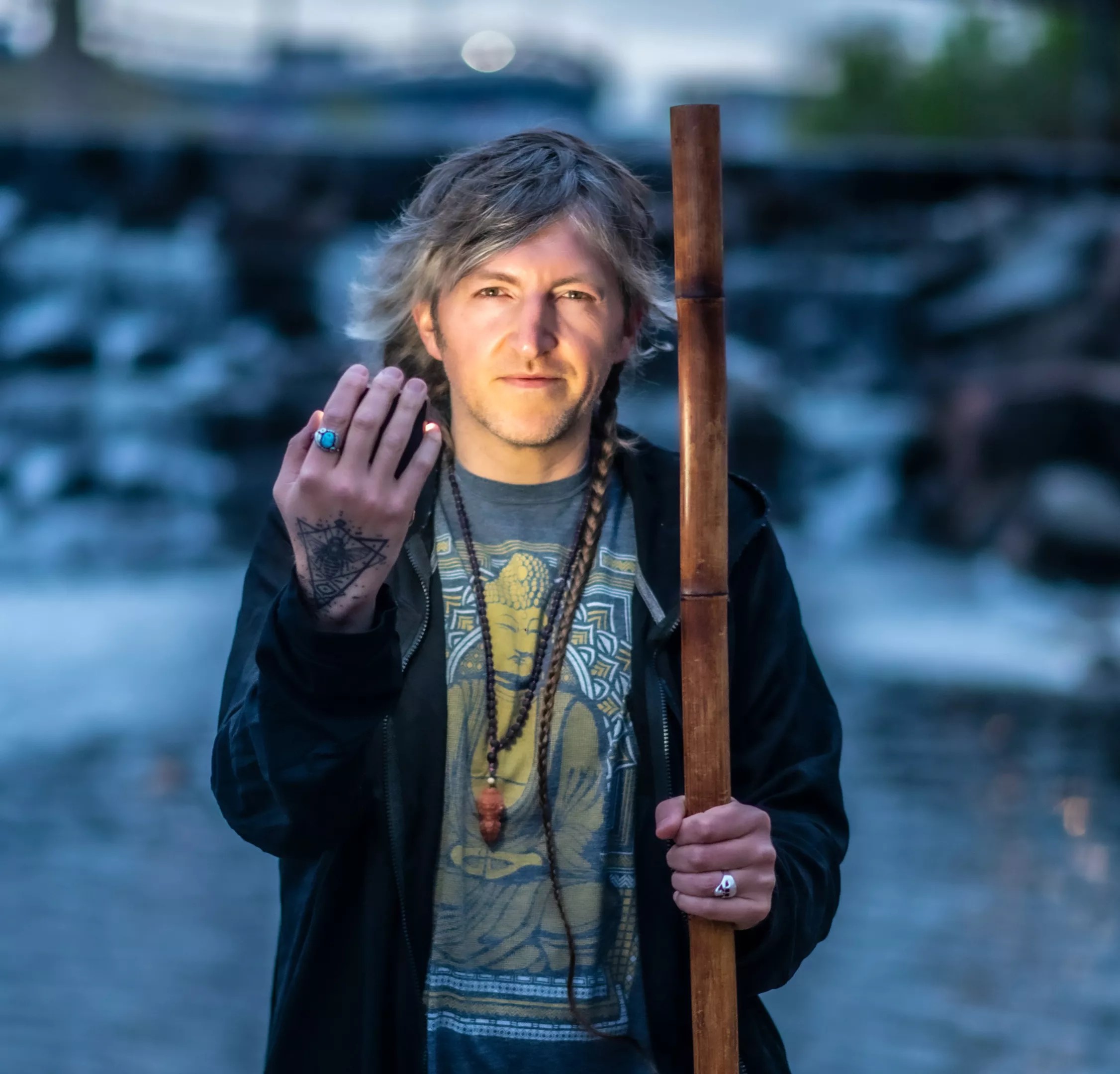
Evan Semón Photography

Audio By Carbonatix
Sitting cross-legged in the upstairs gathering space of Plant Magic Cafe, a nexus of metro Denver’s psychedelic community, Travis Tyler Fluck, a psilocybin educator and psychedelic death doula, recalls his first heroic dose of shrooms back in August 2019: 7.6 grams of the extremely potent Penis Envy strain.
“I took this giant dose to break through and just see what the other side was like,” Fluck says. “And the mushroom obliged me and gave me this vision, this very direct perception.”
In his “non-ego-identified space,” Fluck says he encountered Jesus (though he doesn’t identify as Christian) and Buddha. “I realized that far upstream that both of those things were essentially the same thing,” he recalls.
Earlier that spring, Fluck had been a leader in the successful citizens’ initiative to decriminalize psilocybin mushrooms in Denver, but his work with the natural medicine was about to take a tangent.
Between his life-altering shroom trip and the arrival of the pandemic, the International End of Life Doula Association brought a training course to Denver, and Fluck signed up to become a death doula, “someone who provides companionship, comfort and guidance to those planning for death, diagnosed with a terminal illness or facing imminent death,” according to the group.
“It just felt like a very organic thing,” he says. “I had been hanging out with people in these high-dose experiences and really watching this [ego] death process and then this rebirth part. It felt like something in a former life or my ancestry was pulling me that route.”
The Dying
The existential distress of an incurable terminal disease piles anxiety upon injury. Preparing mentally for your own demise is its own massive psychological burden.
Psilocybin, the active ingredient in magic mushrooms, has shown promise as a treatment for major depression and anxiety in dying patients. However, Colorado’s legal framework created after the passage of Proposition 122 in November 2022 has the medical establishment researching the hallucinogen’s promise in a silo, while local shroom proponents who can now legally give the natural medicine to the dying operate without medical guardrails.
Using psilocybin as a tool in palliative or end-of-life care isn’t a new idea, but as the state begins licensing healing centers, Coloradans will have unprecedented access to use shrooms to treat their own conditions. But they are very unlikely to be medically supervised in the process unless they’re part of a clinical trial.
This lack of academic knowledge is a critical gap, according to Sameet Kumar, a palliative care psychologist at Memorial Cancer Center in Florida and the author of several books on dying, grief and bereavement. Kumar is also certified in psychedelic therapy and research by the California Institute of Integral Studies.
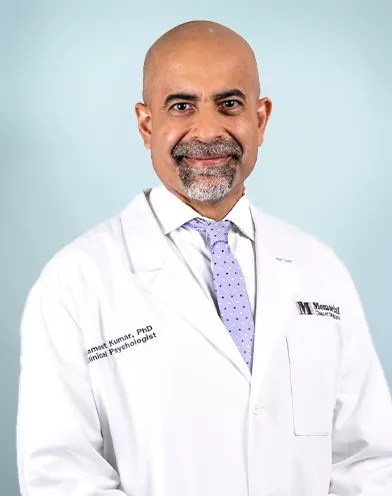
Dr. Kumar Sameet
Memorial Health Care System
“I feel pretty confident that people even with advanced illness, advanced cancer, can safely take mushrooms and have beneficial experiences,” Kumar says, “but we need to know what kind of screening they’re doing – are they looking at blood work? Are they looking at medical records? What if their blood pressure goes up sky high or if there’s a seizure?”
The University of Colorado’s Anschutz Medical Campus issued a document titled “Legal Issues Surrounding Psychedelic Mushrooms for Palliative Care” in early February. It notes that “outside of an approved research protocol with a DEA waiver, there is no current federally legal path for licensed medical providers to provide a patient with psilocybin-containing mushrooms. However, in both Oregon and Colorado, there are state-approved pathways for patients to access such products.”
In our state, at least at this particular moment, both pathways are open for some dying patients. A National Cancer Institute-funded study on treating late-stage cancer patients with psilocybin-assisted therapy is underway at the University of Colorado and is now recruiting patients for clinical trials; others can chart their own course of palliative psilocybin therapy by legally procuring the mushrooms themselves and receiving care from a psychedelic death doula.
The Mushroom
Travis Tyler Fluck’s relationship with the mushroom stretches back three decades; he says he first took shrooms at age fifteen, provided by a friend’s parent at a biker party back East.
Fluck knew he’d found his muse immediately, and over the course of his teenage years he taught himself to cultivate the fungi. “I learned a very rudimentary technique,” he says. “That way I could get mushrooms when I wanted them.”
By the age of twenty, Fluck owned a head shop in New Hope, Pennsylvania, that sold fancy glass pipes and other accessories. That’s when he was pulled over in Maryland with a jar containing “a few flakes of green,” according to Fluck. “The cop says to us, you know in Maryland if you get caught with a seed, you’re going to jail.”
Fluck was arrested and his house was subsequently searched, which landed him on probation. He kept his head shop open, though, until he was arrested again for cannabis possession and mushroom cultivation, eventually spending a year in jail from 2005 to 2006.
“It really positioned me against society,” Fluck says.
In jail, his cellmate had a CD by Phish – a band Fluck didn’t care for previously. In 2009, though, he began following the psychedelically inclined jam band from show to show. In 2010, when the band played Telluride, Fluck fell in love with Colorado.
He moved to Denver in 2017, where he already had a community of heads he’d met on the road over previous years.
In 2020, Fluck earned a certificate of completion from the International End of Life Doula Association, and became one of a burgeoning number of psychedelic death doulas who facilitate psilocybin therapy for patents with terminal illnesses. (The organization notes that it does not educate directly on the use of psychedelics at the end of life.)
“We’ve become estranged from nature, and because of that, we have so much apprehension around dying because we don’t have the direct perception that something about us goes on,” Fluck explains.
“But in this plant medicine realm, we get the opportunity to have felt sense, direct experience, something that surpasses our ability to codify it into language. It’s this direct transmission and then something in your awareness or biology says, ‘Oh, I remember that,'” Fluck continues.
Fluck is not a person of resources, and he doesn’t currently work with or plan to open a licensed healing center. He’s not a licensed natural medicine handler, either, but because he gives away the mushrooms he grows, he’s operating within Colorado’s regulations. He gives away the natural medicine “so there is no barrier to entry for something I think every human being should have access to,” he explains. “Our trauma was free, why should we have to pay to heal?”
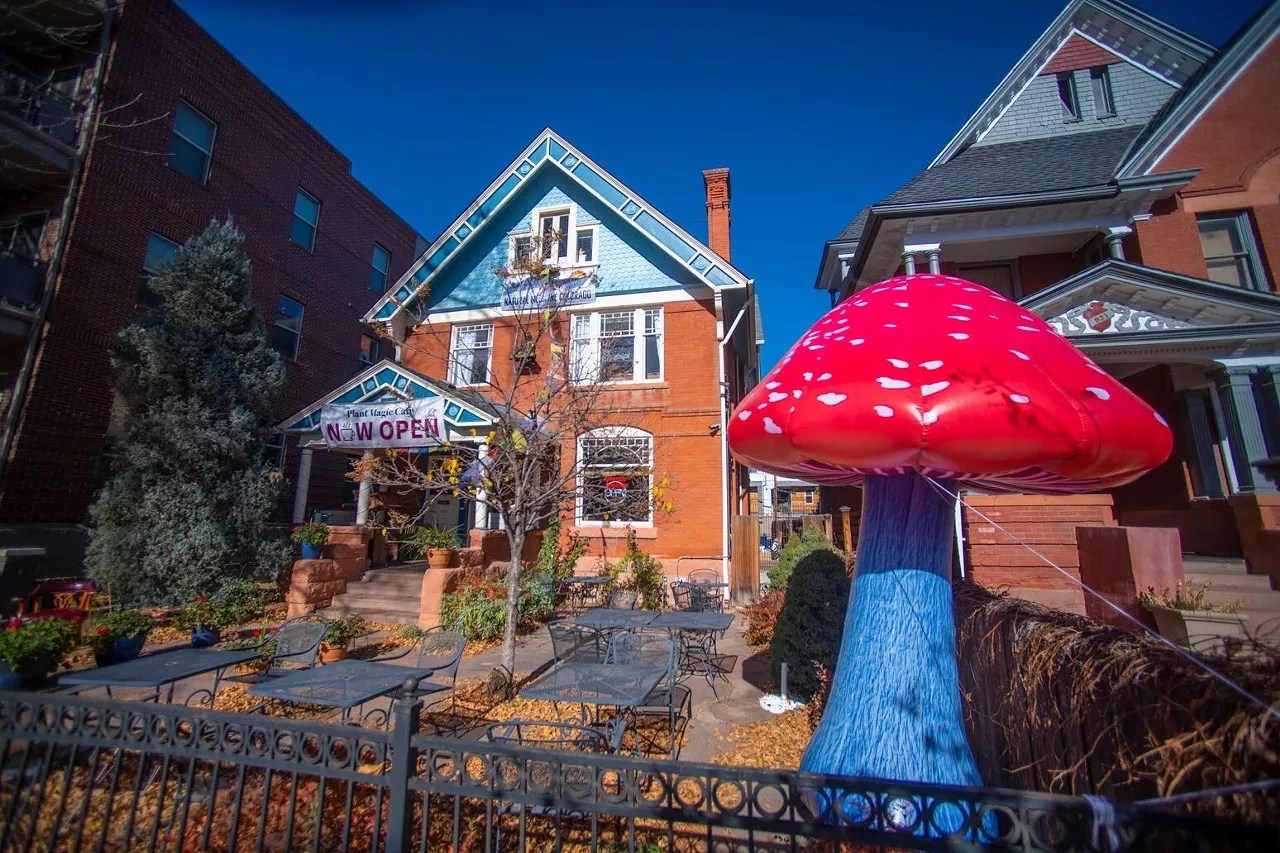
The Plant Magic Cafe is the nexus of metro Denver’s psychedelic community.
Plant Magic Cafe
According to Fluck, his dosing and therapeutic protocols are individualized for end-of-life patients, as some are medicated and disabled. “Almost everyone starts out with microdosing, and sometimes that’s all that’s needed,” he says. “I take time to get to know people and hear their life story – at least the things that aren’t too painful to revisit. Everything is organic and not rushed.”
He meets with individuals at least twice before proceeding with dosing, and stays in contact with them until they transition.
Colorado’s state-authorized pathways for people to access psilocybin mushrooms – being gifted the fungi or, soon, paying for a healing center’s services – have little guarantee of medical oversight, and Fluck is aware of his limitations. He admits that “a lot of this end-of-life space, hospice and stuff, isn’t quite ready to let this in.”
Still, he hopes to see integration with the medical community someday, envisioning a Center for Conscious Dying where physicians also have a role. “One day when I can collaborate with medical professionals, I will feel supported enough to hammer out protocols,” he notes. “I would love to move forward in this role with a lot of intelligent pieces, because me having to assess whether somebody’s body can tolerate this experience or not. I don’t really have anything more than just intuition and ‘go low, go slow’ on my side.
“I feel like my job is concierge,” he explains. “Everything is happening between the medicine and the person. The mushroom is the guide, the mushroom is the facilitator. I’m just there to get somebody water, help ’em to the bathroom.”
The Process
Fluck is his own favorite case study when it comes to psychedelics. He just took his fiftieth intentional dose of shrooms the previous weekend, “and I can tell you that there’s still more to be cooked,” he says with a slight grin.
He tells vivid stories about his own heroically-dosed mushroom trips, many of which sound life-altering. When he narrates how he took a large dose of mushrooms to be with his dog as she was dying, it’s both sad and rather beautiful.
“The medicine showed me how we mutually arose into each other’s lives to do some work,” he says. “I had needs. She had needs on a soul level, and we worked it out in a conspiratorial kind of way. I got to basically give my dog that good girl, but for her whole life.”
In one of his volunteer assignments as a psychedelic death doula – he never charges for his work – his patient was a dying woman; her grown daughter joined her mom on the mushroom journey. The daughter had supplied the mushrooms, and Fluck sat with them as they had the experience.
The mother “got really angry, and she wanted me to leave,” Fluck recalls. “It was really intense for me; she was processing a lot of anger.” But Fluck stayed, promising he’d leave when the experience was over, and watched the mother-daughter dynamic evolve as they tripped together.
“She was in her walker moving around,” he says, “and her daughter’s like, ‘Oh, my god, I haven’t seen her move around in six months.’ She was moving around, even if she was wagging her finger at me.”
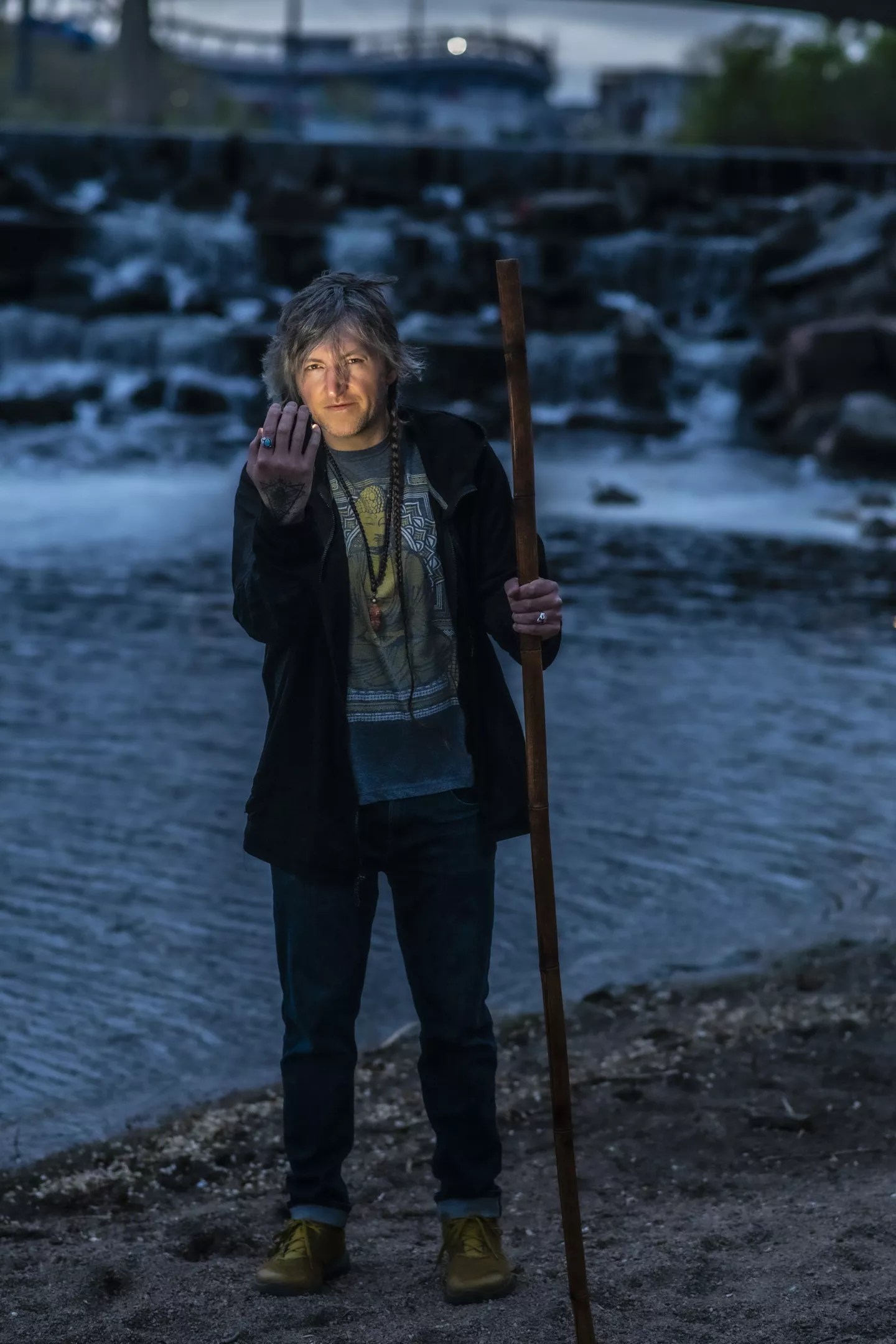
Travis Tyler Fluck offers his services for free.
Evan Semón Photography
Another time, he worked with a man suffering from prostate cancer, bedridden and homebound, and “I could tell that his body just couldn’t handle a journey,” Fluck says. Instead, he gave the man microdoses of psilocybin mushrooms, along with cordyceps mushrooms – a non-psychedelic variety thought to increase adenisone triphosphate, or ATP.
“Even after the first microdose, he just started talking about things that were repressed; his son and his partner were blown away by that, it lubricated something,” Fluck recalls. “One day they decided to go to Walmart, and he goes with them to Walmart, then he goes out to eat with them for a meal. And I think within 48 hours of that little last burst, he transitioned.”
In examining how the mushroom works as a medicine, Fluck has pinned down three main elements. “The first thing it does is it lets people process unfinished business,” he says. “Most people have a life event or two that has completely shaped the course of everything, with a lot of regret and rumination. The mushroom goes right to it.
“The second thing it does is it gives people the felt sense that this isn’t an end, there’s more here,” he continues.
“And the third thing, which is pretty wild, is that other people keep us in our bodies with their thoughts and prayers. They don’t want to let go of us. And that creates a cord – and the mushroom goes in there, cuts those cords and gives the person permission. It quiets the insulation that our programming has created and allows innate intelligence to do what it does.”
The Clinical Trials
While Fluck’s perspective on how psilocybin works for patients facing the end of their lives may sound like wook science, the establishment scientists, doctors and psychologists who work with psychedelic treatments in studies and trials have an essentially similar understanding.
“You’re having experiences which sort of defy verbal description,” says Kumar, the clinical psychologist who has integrated psychedelics into palliative care and developed psilocybin therapy protocols for stage four melanoma patients nearly twenty years ago. “Sometimes people experience childhood events which were very formative, traumatic or hurtful, and they’re able to reintegrate these profound childhood experiences or traumas in a meaningful way.
“We try to prepare people for having an unpredictable experience that defies verbal description – that’s a hard sell for a lot of scientific-minded folks,” he adds.
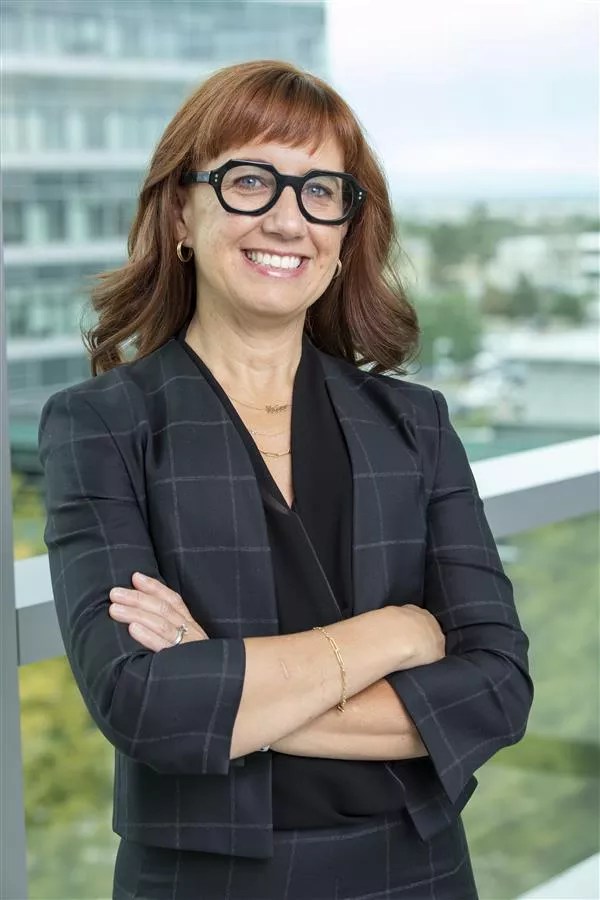
Dr. Stacy Fischer is heading up at study at CU Health Sciences.
CU Health Sciences
Yet the medical establishment is delving into the world of psychedelics. The CU Anschutz Medical Campus is one of two sites nationwide for a clinical trial studying the use of lab-synthesized psilocybin to ease psychological distress in late-stage cancer patients. The $2.1 million study funded by the National Cancer Institute is led by University of Colorado Denver psychology professor Jim Grigsby, who’s also the director of the CU Center for Psychedelic Research, and Dr. Stacy Fischer, a CU Anschutz internist, palliative care physician and researcher; Dr. Steve Ross, a psychiatrist at NYU, runs the other trial site.
“People at the end of life oftentimes have a lot of existential distress,” Fischer says. “Sometimes even traditional therapy approaches are not successful in resolving it, and this is where a lot of the promise and excitement is in the psychedelic space. We don’t fully understand all the mechanisms that are involved in helping people feel better [with psilocybin]; neuroplasticity has been proposed as an important mechanism and probably allows the therapy to work better and faster – at least that’s what we hypothesize.”
Operationally, Fischer adds, psilocybin fuels a feeling of connectedness, “that it’s not just an emotion, but people are seeing this connectedness as an objective truth. Our place in the world and connection to other things and beings, the fact that there’s something greater than us, can really help resolve this feeling of meaninglessness and demoralization and hopelessness that sometimes people experience when they know their life is coming to an end.”
“The Trip Treatment,” Michael Pollan’s 2015 story in the New Yorker, inspired her interest in psilocybin therapy’s potential and led her to partner with Grigsby and Ross on the study.
To qualify, recruits must have a diagnosis of serious cancer, a stage three or stage four disease with the potential to be life-limiting, and they must have significant anxiety. Once a patient is enrolled in the trial, they receive three preparatory therapy sessions over the course of two weeks prior to the dosing day.
On the patient’s dosing day, they lie on a couch in an aesthetically pleasing but windowless room with eyeshades and a curated playlist common to all participants. A therapist is present, but does not guide or psychoanalyze the patient; the therapist is really just there to ground people.
Some patients receive a placebo, the vitamin niacin or B3; Fischer acknowledges the inefficacy of the study’s blinding integrity and hopes to shift to low-dose psilocybin rather than niacin in future studies.
After the dosing day, the patient has four integrative therapy sessions, and at the end of the three-month data collection, every patient, whether they received the drug or placebo, can participate in open-label dosing.
The Disparity
Fluck has his doubts about the CU study’s process; he says he doesn’t believe that lab-synthesized psilocybin accurately recreates the experience of taking the whole mushroom.
On this point, Kumar agrees. “We should probably be using whole mushrooms – and granted, it’s very difficult to standardize doses with that,” he says. “But the most experienced people working with psilocybin therapy are not mushroom providers in Oregon (where it is also decriminalized) or Colorado or the people with clinical trials. It’s the Indigenous people of the world, and they used mushrooms for a very long time and I think we should trust that.”
For her part, Fischer says she’s of two minds about the availability of magic mushrooms in Colorado.
“I think when people are exploring personal growth or understanding our place in the universe, I don’t have any problem with people seeking out those experiences,” she says. “Where I get a little hesitant is if we start making claims to improving suffering, improving symptoms treating illness without a scientific evidence space.
“What we know is the tip of the iceberg and what we don’t know is all the rest,” she continues. “I understand that this is going to be moving into practice at a faster pace than the science can move right now, but my hope is we won’t forgo the science altogether.”
“It’s really interesting to think about the life cycle of the mushroom itself and how it’s a fruiting body out of mycelia that sort of uses different elements of a substrate to grow the mushroom,” Kumar muses. “I think maybe wook science and hard science can be part of that substrate in states that are opening up these healing clinics.”
In the meantime, Fluck speaks to the mushrooms themselves to answer his questions. “The more I am in relation to this organism, I see it as an energetic signature,” he says. It knows exactly what to do when we commune with it, it knows exactly where to go.”